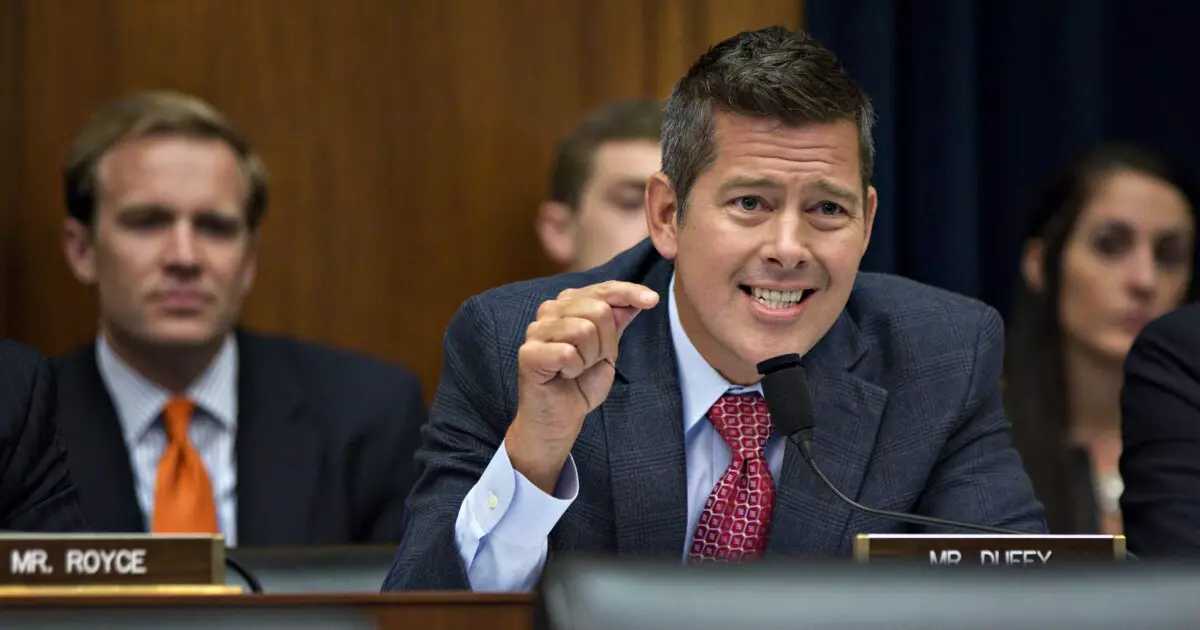In a significant move for U.S. transportation policy, President-elect Donald Trump has proposed Sean Duffy, a former Congressman and current Fox News host, for the role of Secretary of the U.S. Department of Transportation (DOT). Trump’s announcement, made through his Truth Social platform, highlights Duffy’s extensive experience in Congress and his commitment to enhancing the nation’s infrastructure. This nomination comes at a critical juncture, as the DOT ramps up initiatives following the implementation of the Infrastructure Investment and Jobs Act (IIJA) enacted under the Biden administration.
Duffy, 53, brings nearly a decade of congressional experience to the table, having served various roles that equip him with the know-how to effectively lead the DOT. His previous stint as a member of the Financial Services Committee saw him addressing issues central to banking, insurance, and economic stability. Notably, he sponsored the Puerto Rico Oversight, Management, and Economic Stability Act in 2016, which aimed to manage the territory’s fiscal crises. His familiarity with the complexities of federal legislation, as well as practical experience in local governance—having served as a district attorney and special prosecutor in Wisconsin—positions him as a well-rounded candidate to navigate the political terrain of Washington effectively.
The Department of Transportation is undergoing a transformative phase under the IIJA, a monumental bipartisan infrastructure bill that earmarked $1.2 trillion for various projects. The current budget stands at approximately $146.2 billion, marking a substantial increase in funding aimed at modernizing and improving transportation systems across the nation. As Duffy prepares to potentially step into this pivotal role, he faces the dual challenge of building on the successes of the past while addressing emerging transportation needs in a rapidly changing technological landscape.
Trump’s assertion that Duffy will usher in a “Golden Age of Travel” indicates an ambitious vision for the future of U.S. transportation. If confirmed, Duffy will be tasked with overseeing a considerable reauthorization of federal surface transportation programs by 2026. This could lead to significant job creation and infrastructure improvements that many state and local leaders eagerly anticipate. Moreover, his prior connections on Capitol Hill may be crucial for fostering bipartisan support, an essential element in passing expansive transportation legislation.
The nomination has been positively received by key industry players. Jim Tymon, executive director of the American Association of State Highway and Transportation Officials (AASHTO), expressed optimism regarding Duffy’s capability to “navigate the political landscape” effectively, highlighting the importance of collaboration in achieving the DOT’s goals. Similarly, bipartisan support was reflected in statements from House Transportation and Infrastructure Ranking Member Rep. Rick Larsen, who emphasized the long-standing tradition of collaboration in transportation policy.
Beyond his political endeavors, Sean Duffy’s multifaceted background—spanning roles from a special prosecutor to a former professional lumberjack—adds depth to his candidacy. His active involvement in diverse fields could lead to innovative and community-oriented approaches within the DOT. Furthermore, his relationship with fellow media personality Rachel Campos-Duffy could increase the visibility of transportation issues among the public, potentially broadening community engagement and support for upcoming initiatives.
As the countdown to confirmation begins, the implications of Sean Duffy’s nomination to head the U.S. Department of Transportation are rather consequential. His ability to meld experience with a fresh outlook could pave the way for groundbreaking advancements in national infrastructure, safety, and efficiency. In a time characterized by heightened demands for innovation and sustainable progress, the leadership of the DOT under Duffy will be closely scrutinized, setting the tone for America’s journey towards a more effective transportation future. The coming months will not only define Duffy’s role but potentially reshape the way American infrastructure evolves in the years ahead.


Leave a Reply